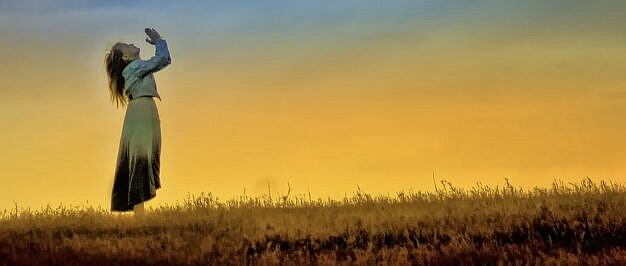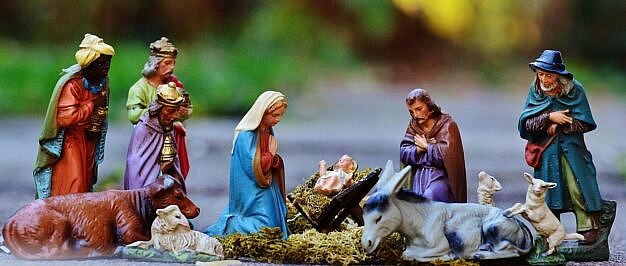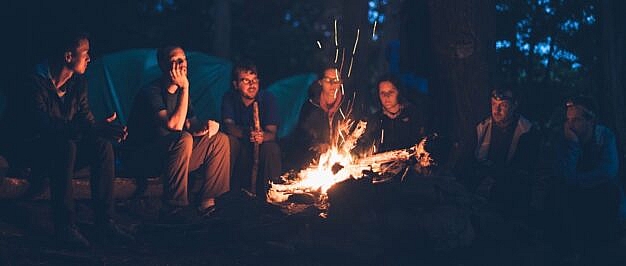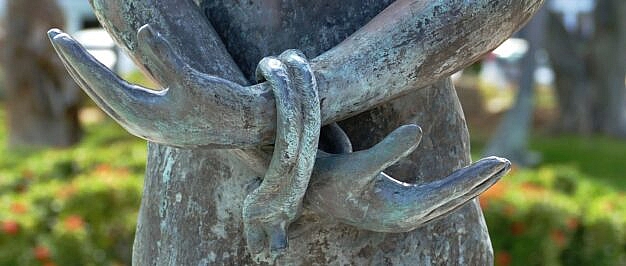Once upon a time I was falling in loveNow I’m only falling apart.There’s nothing I can doA total eclipse of the heart. – Jim Steinman On April 8, a total solar eclipse made a diagonal cut across parts of Central and North America, with parts of 15 U.S. states within the path of totality. Here in St. Louis, we didn’t get this totality, but were in something like the ninety-ninth percentage and got enough of it to know something strange …
Author: Steve
Once when I was a boy I was trying to find something — I don’t remember now what it was — but this thing ended up being right there on the table in front of me. My father laughed as he pointed it out to me and said, “If it had been a snake, it would have bitten you.” As a child, that metaphor scared me a little. What IF it had been a snake? What IF I hadn’t seen …
In 1848, a Shaker elder named Joseph Brackett wrote an easy-to-learn-and-sing tune for his community called “Simple Gifts.” We all know it today because it has made its way into American (and Irish) culture, interpreted and recorded often by folksingers, church and school choirs, and even symphony orchestras. It evolved to become the Christian folk song, “The Lord of the Dance.” The composer Aaron Copland incorporated its melody into his masterpiece, “Appalachian Spring.” The hit Irish dance review, “The Lord …
Whether you’re an experienced and seasoned practitioner of Ignatian spirituality or a seeker looking for new ways to put your faith into practice, Jim Manney’s new book of daily “actionables” is going to be a welcome addition to your nightstand or prayer space. Manney, a former editor at Loyola Press and author of many books on Ignatian spirituality, including “Ignatian Spirituality A to Z,” “What Do You Really Want?” and his popular work on the Examen, “A Simple, Life-Changing Prayer,” …
“But some seed fell on rich soil, and produced fruit, a hundred or sixty or thirtyfold. Whoever has ears ought to hear.” (Matthew 13:9) My father’s garden wasn’t much by the standards of many gardens. It was situated on a small plot of land in the backyard of my North St. Louis home in the 1960s and early ‘70s, planted with love, passion and knowledge gleaned from the pages of Organic Gardening magazine. It sat at the back of the …
Christmas Eve has always been my favorite day of the year. As a child, although Christmas morning brought presents around the tree, it was Christmas Eve that brought the emotion. Christmas Eve is about expectation, hope and promise. Christmas Eve was the one night of the year that my sister, brother and I all slept in the same bed on the second story of our home in North St. Louis so (when we were very young) Santa could come and …
A Christmas Message and Video For two thousand years, Christians have gathered around fires, in churches and in their homes to retell the story of the Incarnation and birth of Jesus Christ. They have passed on the good news to each other — and especially to their children — that God decided He needed to be with us, needed to become one of us. We believe the story of the birth of Jesus in Bethlehem to be true history. But …
Dear friends, On this ordinary day just a few days past the American holiday of Thanksgiving, I write to share a reminder (in words and in the video below) that faith requires an ongoing commitment to this idea of Thanksgiving — to awareness and living with our eyes wide open to our blessings. Above all, to gratitude. We are called to recognize the holy when God puts it right before our eyes. It should be our life’s work to pay …
I continued praying this past week with “Journey with Jesus,” Larry Warner’s guide through the Spiritual Exercises of St. Ignatius Loyola. The theme was “indifference,” in the Ignatian sense of the word, so let’s begin there… — Although “indifference” is often used to speak of not caring about something or having a lack of passion, in this spiritual sense it carries a different (and deeper) meaning. When properly understood and embraced, it leads to a freedom to say yes to …
As I continued my way this week through “Journey with Jesus,” Larry Warner’s guide through the Spiritual Exercises of St. Ignatius Loyola, the theme was “service,” with Jesus set before us as role model. The grace I was told to pray for was the ability to own my role as one who serves others. Here are a few thoughts from my journal… — “Jesus did not come to be served but to serve.” (Matthew 20:28) This challenge to “be like …










